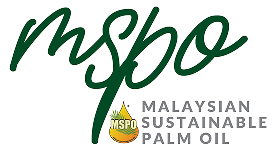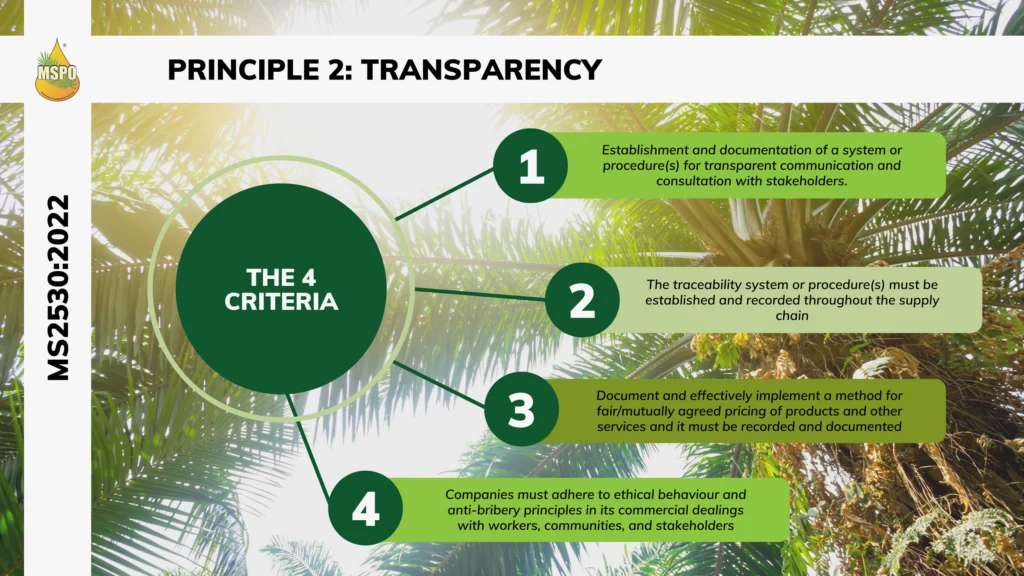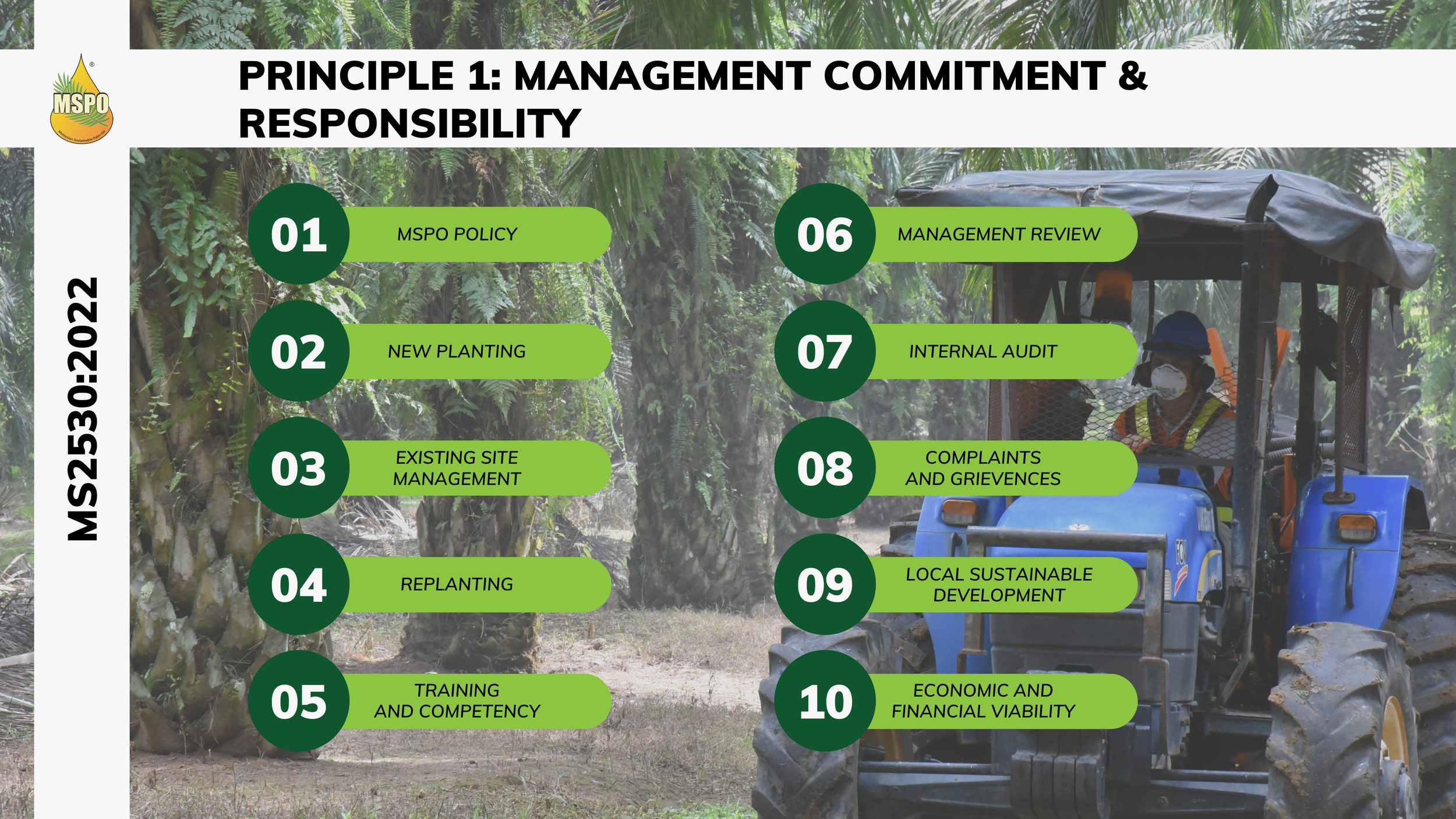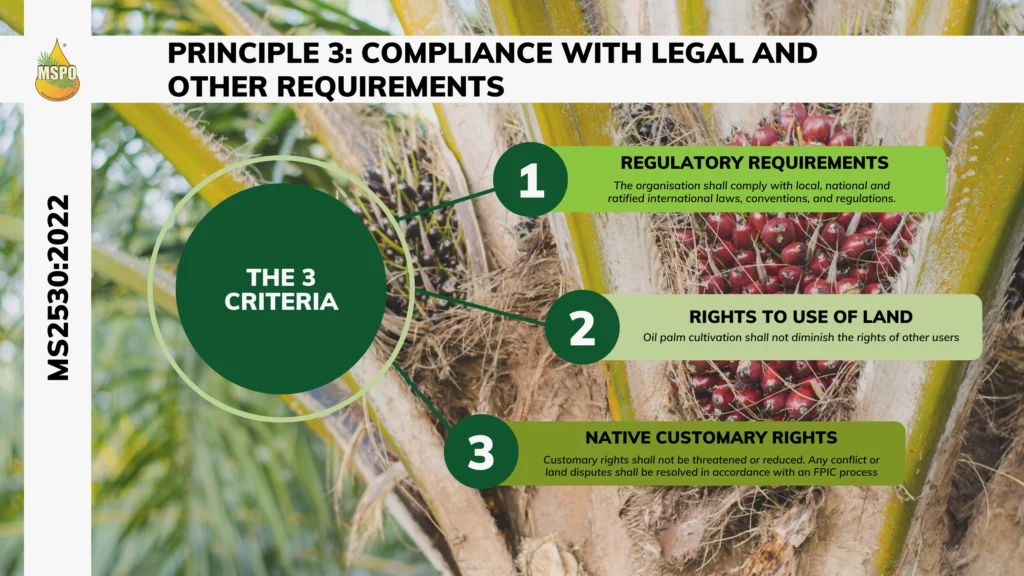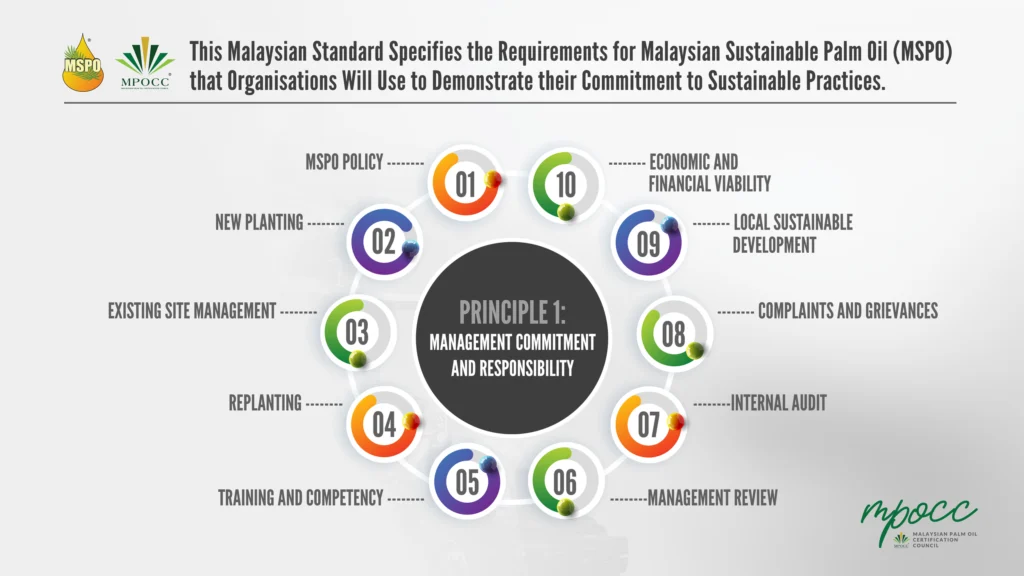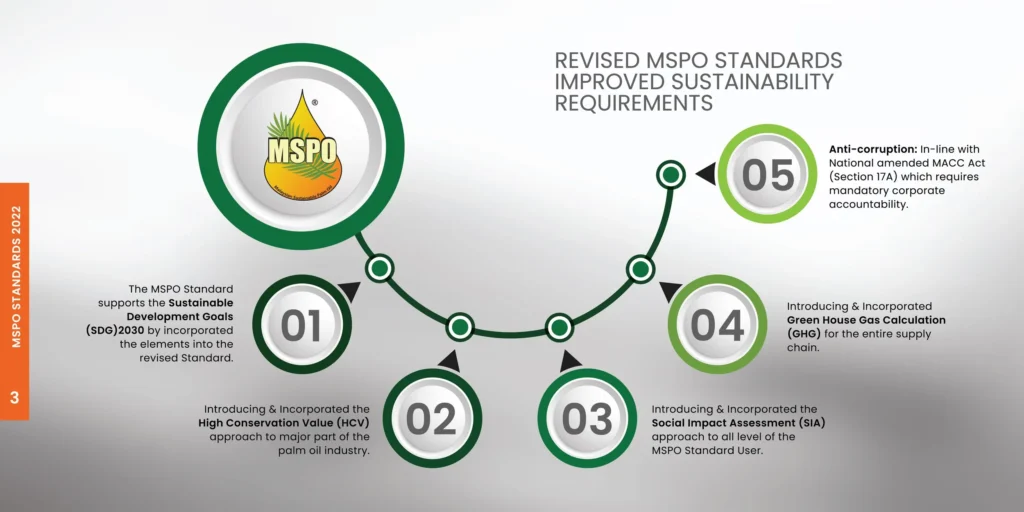Written by Izzuddin Yusop, MPOCC
Transparency refers to an organisation’s commitment to be transparent and upfront in its business dealings to build trust and demonstrate the value it provides. It may lead to improved communication, involvement, and cooperation, as well as more informed decision-making, based on this. This article will begin with the comparison of MS2530: 2022 with MS2530: 2013 and an overview of Principle 2: Transparency.
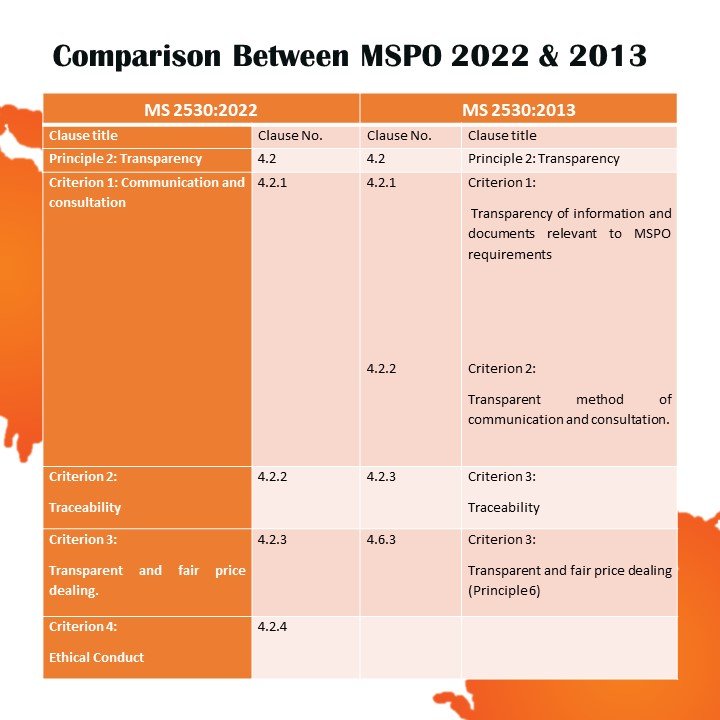
Referring to Table 1, the number of criterion for both versions of the standards are almost the same. However, in MS2530:2022, there is an additional new criterion that covers on ethical conduct element. As for the MS2530:2013 version, both Criterion 1 and 2 have been merged under Principle 2 and criterion 3 in Principle 6 has been shifted.
In MS2530:2022, Principle 2 on Transparency consists of four requirements to demonstrate transparency which are:
-
Communication and consultation
-
Traceability
-
Transparent and fair price dealing
-
Ethical Conduct.
Criterion 1 requires the establishment and documentation of a system or procedure(s) for transparent communication and consultation with stakeholders. The information and communications from the organisations must be consistent, reliable, and transparent which meet its compliance duty on MSPO. Relevant communication from the organisation’s stakeholders must be responded to.
The second criterion touches on the traceability of the relevant product. The traceability system or procedure(s) must be established and recorded throughout the supply chain. To comply with the requirement on traceability, the organisation must establish, execute, and maintain in accordance with the system or procedure (s). Therefore, it is very important to keep track of the records for sales, deliveries, and transportation of products which includes information on the buyer’s name and address, product identification, MSPO certificate numbers, and the validity, and so on.
It is very crucial for organisation to maintain accurate and up-to-date data to ensure that all the records are well recorded for the traceability system. Therefore, the organisation must appoint (a) management representative (s) to ensure all the records are well maintained and kept for at least 24 hours in accordance with the requirements.
For the MSPO Part 4-1, 4-2, and 4-3, the actors (mill, other processing facilities and dealers) should comply with the additional indicator in criterion 2 which is traceability models. There are 2 types of traceability model: Segregation (SG) and Mass Balance (MB).
The Segregation (SG)
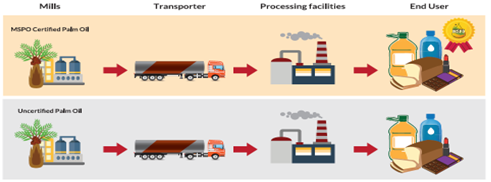
As shown in picture 1, SG is defined as only MSPO SG certified palm oil products provided to end customers. The facility must create processes and preserve records to ensure that MSPO SG products are kept separate from non-SG products to strive for 100% separation.
Mass Balance (MB)
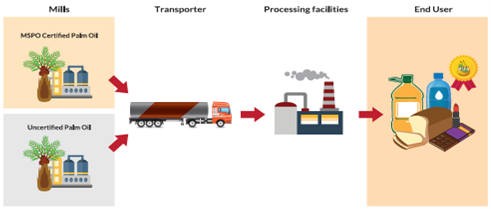
The MB model is used to track the trade of MSPO-certified palm oil products across the whole supply chain. Referring to picture 2, the MB Model allows a mix of MSPO and non-MSPO certified palm oil products at any point in the supply chain if total site amounts are restricted. The organisation is responsible to ensure that the quantity of physical MSPO MB palm oil product inputs and outputs, which are measured in volume or weight at the physical site and the organisation must ensure that the input of MSPO certified oil palm products received at the physical site must do not exceed the MSPO MB palm oil product provided to customer with using;
(i) a continuous accounting system
The organisation shall monitor the inputs and outputs at the physical site are monitored on a real-time basis and shall ensure the material of the accounting is not overdrawn.
(ii) a fixed inventory period but, only one accounting system will be implemented at a time by the organisation.
The organisation must guarantee that MSPO MB palm oil product inputs and outputs are balanced, and the period shall be within three months and unused credits can be carried over to the next inventory period and documented in the material accounting system. The organisation also ensures that the material accounting system is not overdrawn at the end of the inventory period.
The organisation that has outsourced activities to an independent third party or parties shall ensure that it has legal ownership of all activities and has an agreement that covers the outsourced activities with each contractor. The organisation must at the same time follow the MSPO certification scheme’s rules while using the MSPO logo and making claims. For the supply chain organisation, it must use the scheme owner’s specified IT system which is currently the MSPO trace to record the manufacture and sale of MSPO certified items.
The third criterion is transparent and fair price dealing. It is necessary to document and effectively implement a method for fair/mutually agreed pricing of products and other services and it must be recorded and documented. All contracts must be mutually agreed upon, lawful, and transparent, and all agreed-upon payments must be made on time. The contracts also must state on acceptance of certified auditors to verify relevant MSPO requirements which must be included in the contracts, a physical on-site inspection if needed so.
Criterion 4 which is the newly introduced criteria for Principle 2 stated that the company must adhere to ethical behaviour and anti-bribery principles in its commercial dealings with workers, communities, and stakeholders. In all corporate operations and activities, including recruiting and contract awards, a policy for ethical behaviour and anti-bribery must be formulated, disseminated, and executed. A mechanism must also be in place to track compliance with the policy, as well as general ethical business and anti-bribery practices.
In conclusion, this will ensure that all actors along the palm oil value chain are able to ensure our country’s palm oil is sustainable for market access and recognise in global markets.
